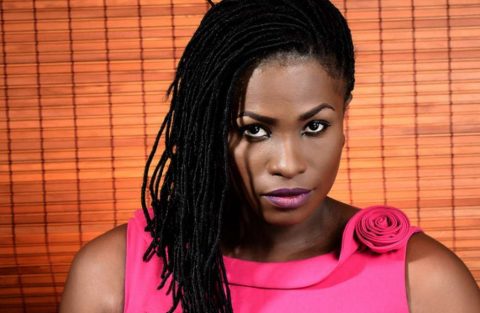
Spotlighting ladies calling the shots in Nollywood
–
From earliest recollection, women were stereotyped and limited to being in front of the camera as actors. And when there were behind the scene, they played the roles of makeup artists, costumiers, welfare and such roles not considered to be intellectually challenging as producing and directing a film or TV soap opera.
Even as recently as last year, a study by the Centre for the Study of Women in Film and Television at San Diego State University, U.S., showed that out of the top 250 highest grossing films at the domestic box office (Hollywood), only seven percent had female directors. This is even in a society where women are given so many opportunities to excel at anything they are interested in.
In Hollywood where studio budgets are huge, women are considered to be too much of a risk, as they are perceived to make crappy movies, which may flop and make it impossible for studios to recoup their investments. The case is slightly different here in Nigeria, as the industry has attracted a lot of female directors in recent times. They are stepping in the shoes that were left for the men alone, and making big box office hits.
The book Ladies Calling the Shots by Niran Adedokun appreciates the irrepressible spirit of the Nigerian filmmaker and is particularly enthralled by the single-mindedness of female filmmakers. Adedokun began his career as a journalist and had the opportunity of being one of the earliest reporters of the home video revolution known as Nollywood. In this book, Adedokun identifies 17 such directors out of the exhaustive list from different generations with the hope that the book will inspire aspiring female filmmakers to strive for excellence.
A good number of these women in film originally set out to study other courses. That was the case with Adeola Osunkojo but the artist in her would lead her back to where she belonged, the film. In her case, she understudied other directors who had carved a niche for themselves to improve on her craft. At that, directing was not the area she wanted to focus on but the frustration she felt each time another director interpreted her script forced her to learn how to direct. Today she has written, produced and directed many films and television programmes.
Amaka Igwe, considered to be one of the earliest, who took the bull by the horns, not minding if she would encounter any problems or not, and whom like mother-hen, trained many other female directors, was born an artists, as writing and directing came naturally to her.
In one of her interviews the late movie director had stated, “The first time I saw a production being done from start to finish was when I was in primary one. The script was written by my sister who was in secondary school then; the drama had my brother acting about three or four roles and my sister as well, all of us were involved.”
She knew where she belonged from day one. Though Igwe ended up studying education/religious studies at the University of Ife, she later said the course was the fortuitous propeller for the career she built in the Nigerian television and movie landscape.
Like Igwe, Berlinda Yanga-Agedah always knew she was an artist and was going to end up as one. And so after her first year as an engineering student at Glasgow, Scotland, U.K., the lecturers noticed the way she always brought in an aspect of film in all she did even as an engineering student. They advised her to switch and without wasting time, she enrolled in the film department at the university.
Blessing Egbe and Ema Edosio had about the same story to tell as both stumbled on arts and fell in love with it and pursued it. Funke Fayoyin is also one who knew she would end up an artist; she is one of the females calling the shots today in Nollywood.
Grace Edwin-Okon was already in arts but the attitude of directors she hired did not produce the desired result and so she decided to go into directing. She went through the tutelage of Zeb Ejiro.
For Ola Selhurst, it was another opportunity to fill in the gap as a director due to unforeseen circumstances, as against producing and writing, which she initially signed up for. She would eventually find her voice as a director with Studio.
All of the 17 females featured in the 253 pages book have similar stories from those that are natural artists and did not have opposition from their parents, to those who stumbled on the arts and those who, due to dissatisfaction, found themselves calling the shots.
Omoni Oboli, Pat Oghre-Imobhio, Remi Vaughan-Richards, Ronke Macaulay, Staphanie Linus and Tope Oshin all have similar stories to tell. Most of them who were not trained in film went to get training and some simply learnt at the feet of the masters to become what they are. The advise they all have for females who intend to tow their path is to take on any role in film production but saying that directing is for the fearless and hardworking.
Adedokun’s Ladies Calling the Shots will encourage other women, who still believe they are only meant to be seen in front of the camera, as actors, to take a bold step and try their hands on other things. All of their stories are simple and straightforward, easy to understand and encouraging enough for anyone who does not know where to begin.






